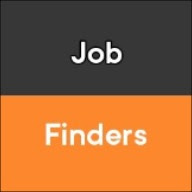- They think about the skills they need for the next job.
- They speak up in meetings.
- They dress for the job they want.
- They get to know the higher-ups.
- They know how to communicate with those higher-ups.
- They don't panic when they're caught in the elevator with a CEO.
- They take charge.
- They look for leadership opportunities.
- They make allies across the organization.
- They give people their full attention.
- They stay professional.
- They show up on time.
- They think like managers, not employees.
- They record their accomplishments.
- They communicate those accomplishments.
- They focus on results, not just activities.
- They pay attention to who else is getting promoted.
- They don't compare themselves to others.
- They pitch in.
- They listen to feedback.
- They solve problems.
- They identify inefficiencies.
- They steer clear of gossip.
- But they don't avoid politics altogether.
- They keep tabs on the business as a whole.
- They keep tabs on other parts of the business.
- They commit to learning.
- They stay positive.
- They socialize.
- They pay attention to body language.
- They know how to pitch ideas (the right way).
- They're comfortable with pressure.
- They look cool, calm, and collected (even when they're not).
- They don't over-apologize.
- They look for opportunities to get in front of others.
- They don't worry about perfection.
- They own up to their mistakes.
- They take opportunities they're afraid of.
- They're not afraid to ask for help.
- They don't say yes to everything.
- They constantly think about their careers.
- They always know what they need to work on.
- They know what they need to do their best work.
- They actually like their jobs.
- They ask for what they want (and how to get there).
- They don't stop reaching higher.
- They read The Muse's newsletter (obviously).
For example, developing strong relationships with people in your organization can help you advance your career. Getting to know the higher-ups and communicating with them effectively can help you stand out and increase your visibility. Making allies across the organization can also help you get things done and make progress on your goals.
Effective professionals also focus on results, not just activities. They know what they need to do to achieve their goals and they don't waste time on tasks that don't contribute to those goals. They also record their accomplishments and communicate them effectively, so that others are aware of their contributions.
Another important habit of highly effective professionals is that they stay positive. They don't let setbacks or failures bring them down. They also commit to learning and constantly improving their skills and knowledge.
In conclusion, adopting some of these habits can help you become more effective and successful in your career. Whether it's building strong relationships, focusing on results, staying positive, or constantly learning and improving, there are many things you
https://jobfinders101.blogspot.com/p/how-to-make-money-on-upwork-complete.html
Informational Interview Tips
https://jobfinders101.blogspot.com/p/informational-interview-tips.html
Key to Maintaining Confidence in Your Job Search
https://jobfinders101.blogspot.com/p/key-to-maintaining-confidence-in-your.html
Career advice and insights to help you succeed
https://jobfinders101.blogspot.com/p/career-advice-and-insights-to-help-you.html
https://jobfinders101.blogspot.com/p/9-addictions-you-must-break-to-become.html
Visit Blog:
https://jobfinders101.blogspot.com/p/our-blogs.html








0 Comments